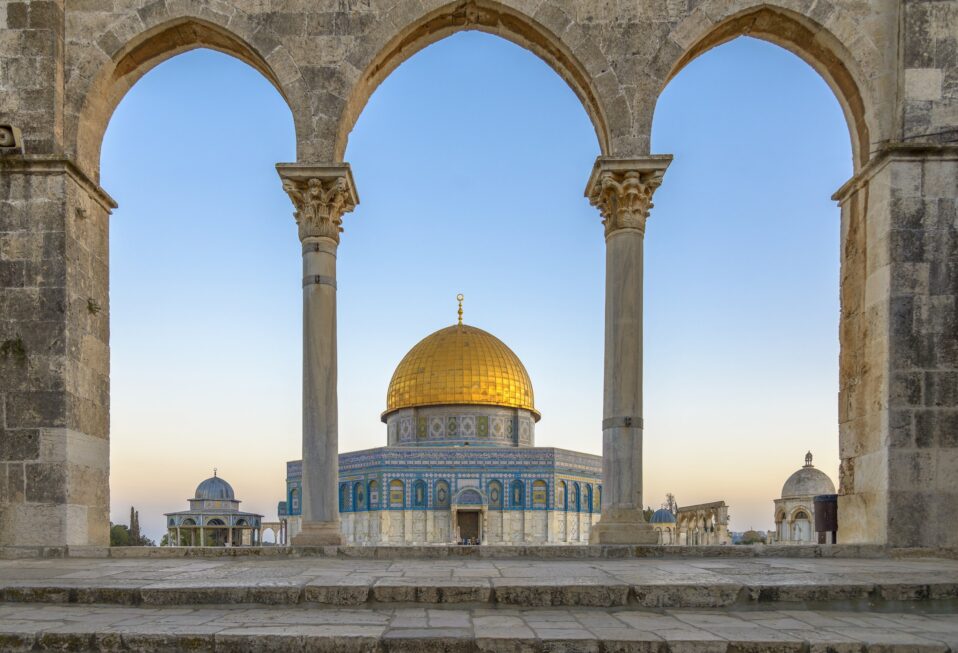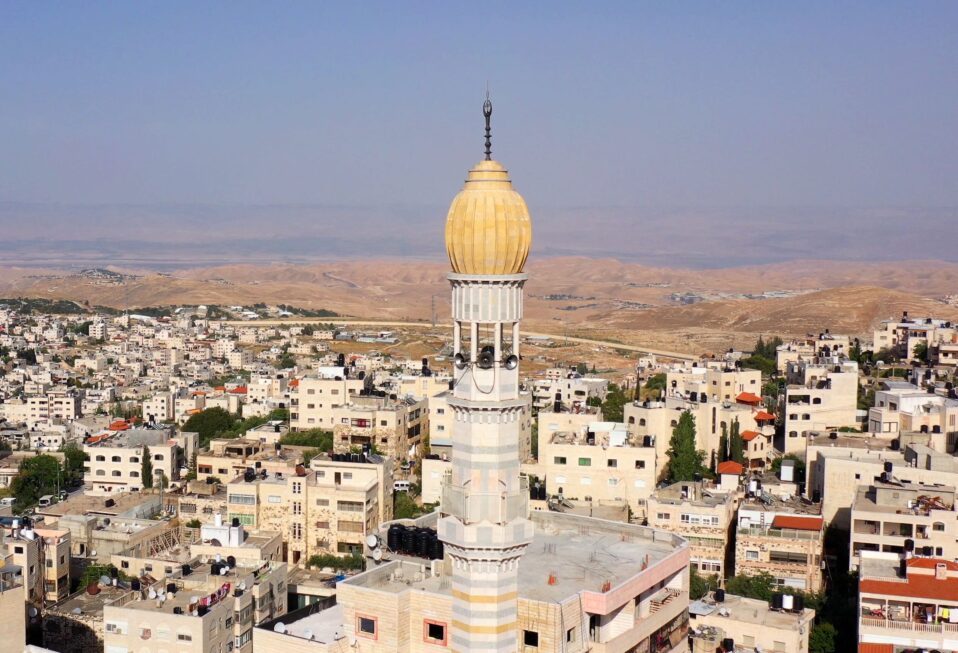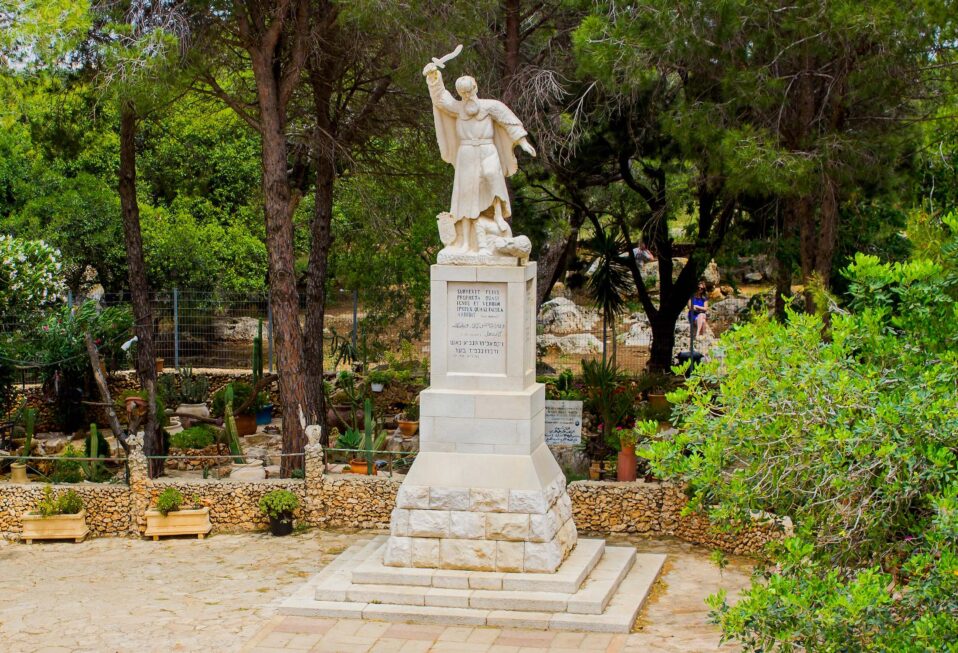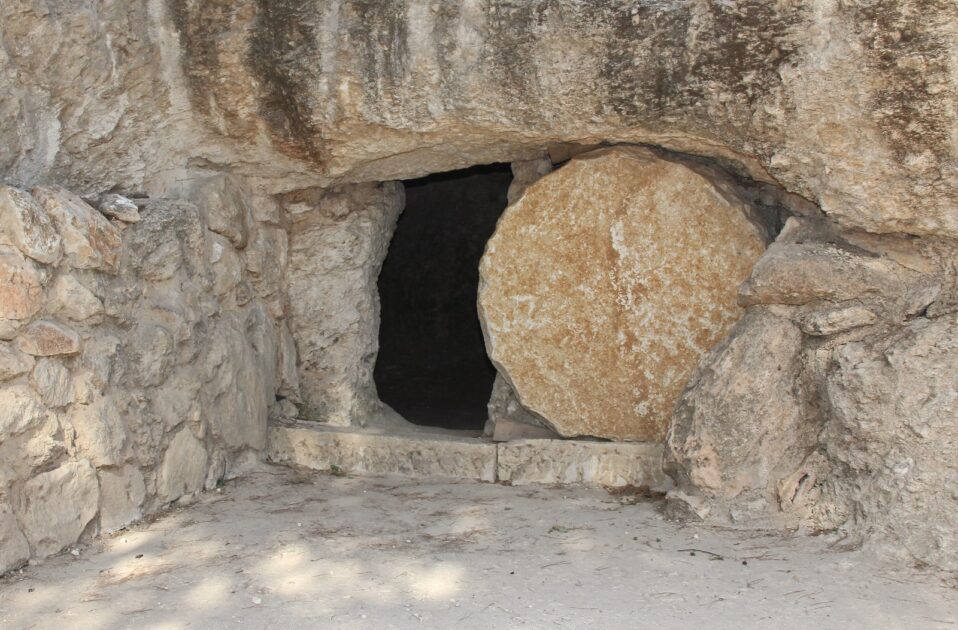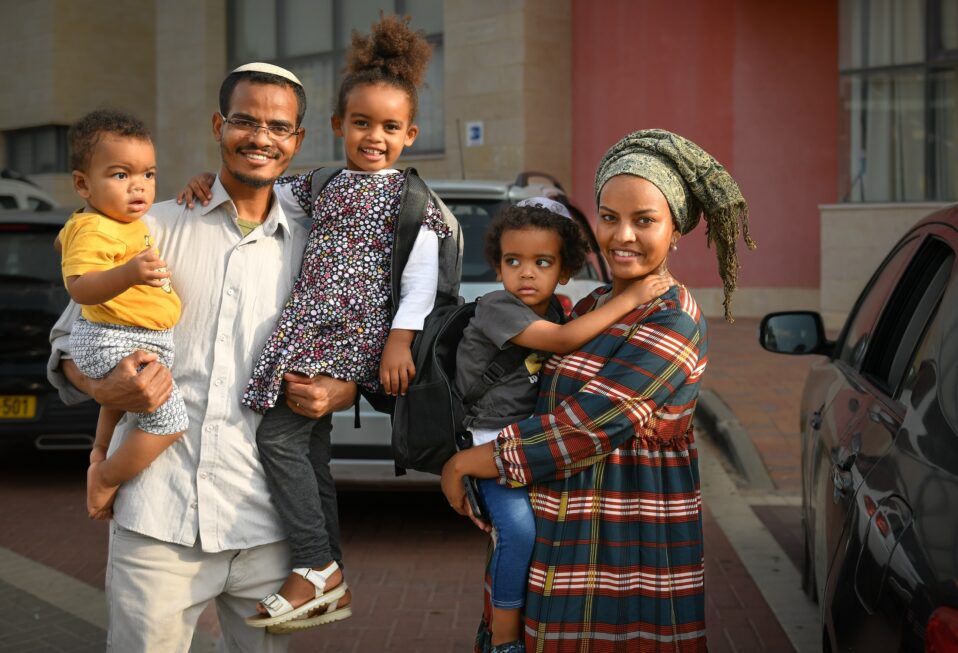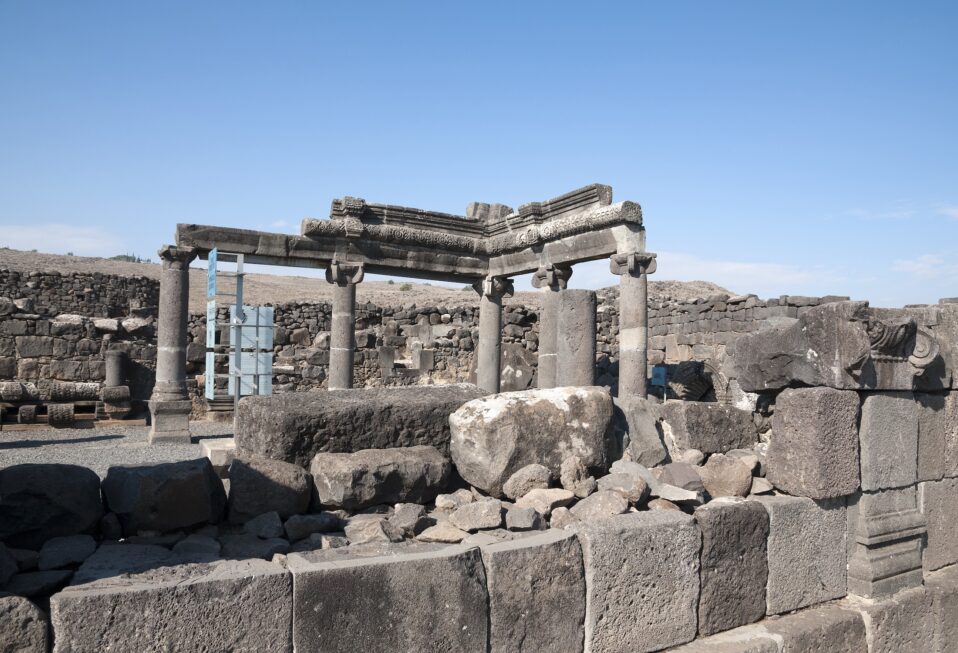By Arlene Bridges Samuels
Three thousand years of recorded history sit atop, around, and below the Temple Mount in Jerusalem, Israel’s capital city. The 37-acre trapezium-shaped platform rises 2,400 feet above ground. Judaism’s holiest site, the Western Wall (Kotel in Hebrew), is on the southwest side. Built by King Herod during Roman occupation, it’s one of the outer retaining walls, with limestone block upon limestone block reaching a height of 60 feet.
The Western Wall Heritage Foundation notes that this sacred site is visited by upwards of 12 million people annually. It is often the first place Christians want to visit. That held true for me in 1990 on my first trip to Israel and for many trips afterwards.
One of my favorite hours to visit the Kotel is at night, when neither Jews nor Christians crowd the plaza. Reaching out to push my tiny prayer paper into an already-crowded crevice, I lean my forehead against the stones. I’m filled with awe as I picture our Lord Jesus walking the Pilgrim Road up to the Temple to teach and celebrate the Jewish feasts. Jerusalem holds His invisible footprints. The quiet of the evening adds to moments of peace, as I breathe in the Jerusalem air that is sown with thousands of years of prayers and history.
Millions of Christians have joined with countless generations of Jews in drawing deep spiritual meaning from praying at the Kotel on one side of the Temple Mount. Yet why does it remain such a disputed area? Like all things in Israel, complexity and conflict are woven into an intricate yet holy history.
Here’s a brief look into just a few points of that history. The three monotheistic religions—Judaism, Islam, and Christianity—fasten the 37-acre platform to their faiths for varying reasons and are protected by Israel’s religious freedom. Christians honor the Temple Mount because our Jewish Savior Jesus taught in and around the Second Temple during His earthly life. For Muslims, the mount (Arabic: al-Ḥaram al-Sharīf) is said to be the spot where their founder Mohammed arrived after journeying from Mecca to Jerusalem—and from which they believe he ascended to heaven.
In Jewish hearts and prayers, conquests by Babylonians, Romans, Turkish Ottomans, and others could never dim the holiness of this sacred place. The Temple Mount (Har HaBáyit) and Western Wall (Kotel) have been revered for three millennia in Jewish thought and emotion.
The God of Abraham, Isaac, and Jacob is the final authority, transcribing His words through Jewish minds and hands in the Old and New Testaments. In a conversation between God and Abraham in Genesis 17:19, God codified His eternal real estate deed: “Sarah your wife shall bear you a son, and you shall name him Isaac; and I will maintain My covenant with him as an everlasting covenant for his offspring to come.” In modern times, the historical facts have been proven repeatedly by archaeology’s considerable discoveries.
The Western Wall Foundation reports that “touring the length of it and praying next to its gates is an ancient tradition.” In the 10th century, a Jerusalem resident sent a letter to a Jewish community in the Diaspora showing the intensity of the Jewish dependence on the location, saying, “We have no comfort other than circling the gates and bowing and asking for mercy.” The Temples’ two physical structures have slipped into the background, the al-Aqsa Mosque still stands, yet God has never abandoned His eternal contract with the Jewish people.
Fast forward several thousand years to May 14, 1948, where a biblical shift occurred—a magnificent, world-changing event. The questions asked in Isaiah 66:8 turned into a modern answer. “Who has ever heard of such things? Who has ever seen things like this? Can a country be born in a day or a nation be brought forth in a moment? Yet no sooner is Zion in labor than she gives birth to her children.” Israel became a restored and modern Jewish state after the United Nations vote on May 14, 1948.
The first Prime Minister, Ben Gurion, announced the modern state’s name, Israel, inside a simple art gallery in Tel Aviv, now known as Independence Hall. Stepping to the microphone, he read the Declaration of Independence where a large portrait of Theodore Herzl hung on the wall behind him. The dream of the visionary Herzl—the father of modern political Zionism—had come true!
The exuberant residents of the newly recognized nation danced in the streets! But all too soon—the next day, in fact—the dancing stopped, as hostilities began in the Arab-instigated War of Independence. Although ill equipped, Israel won that conflict, but the incident was the beginning of wars and conflicts that have produced almost unrelenting chaos for Israel in various forms ever since. The Temple Mount epitomizes one of the most contentious and unique battlefields in history, as conflict grew more consequential.
The Six-Day war in 1967 literally changed the Israeli landscape, when the armies of Egypt, Syria and Jordan attacked Israel—and Israel captured the Sinai Peninsula, Gaza Strip, West Bank (biblical Judea and Samaria), Jerusalem’s old city, and the Golan Heights. Israel’s victory between June 5-10 still stands as one of the most monumental events in Jewish history. In three hours on June 5, the Israel Air Force wiped out most of Egypt’s air power.
One of my favorite stories occurred on June 7, the day that victorious Israeli paratroopers stood at the Western Wall in a united Jerusalem. Brigadier-General Shlomo Goren, one of the first to arrive at the Wall, was also a Rabbi. He brought his Torah scroll in one arm and his shofar in the other. He prayed the first Jewish prayer at the Wall since 1948. Then putting the shofar to his lips, he blew the sounds that resonate in the way only a shofar can. Its commanding notes sounded the victory at the sacred wall. Someone took his photograph surrounded by the soldiers, and the iconic photo went around the world. Rabbi Goren was the head of the military rabbinate of the Israel Defense Forces and later became the Chief Rabbi of Israel.
Under Jordan’s rule in Jerusalem from 1948 until 1967, the Temple Mount was managed by the Islamic Waqf, a Jordanian foundation. Jews were not allowed on the Temple Mount. Despite such restrictions, in the immediate aftermath of the Six-Day War, Israel’s leadership made decisions that they hoped would create mutual tolerance.
Years ago, historian Michael Oren, former Israeli ambassador to the United States, eloquently summed up Israel’s high-minded response: “The great irony … is that when the Jews had the opportunity to take over al-Aqsa on June 7, 1967, when an Israeli flag flew over the Dome of the Rock mosque, when the rabbi of the [Israel Defense Forces] was advocating blowing up the mosque … along came the great warrior Moshe Dayan.” Oren says Dayan stated, ‘Not only are we not going to blow up the mosque—we’re going to take down the Israeli flag and give the mosque back to the Jordanians, who just tried to wage a war of annihilation against us.’ Understand the magnanimity of that gesture. We’ve been paying for it ever since.”
And pay they have. The Jordanian Waqf still manages the Temple Mount, and Israeli police still control security. Imams spew out inflammatory sermons, with baseless lies alleging that Israel is going to blow up the shrine and the mosque. Just one small incident or word can elicit such hysteria that Israeli police are sometimes forced to close the Temple Mount. In the hands of Muslims, the Temple Mount is a pawn used in a deadly game of hatred toward Israel, the rightful inheritors of the 37-acre platform.
To date, the 2000-2005 Intifada (uprising) is the most horrific consequence of the Waqf and Israel, locked in disastrous tandem. One stirs up hatred; the other tries to keep the peace. The Israel Ministry of Foreign Affairs lists the Intifada’s deadly results: “Over 1,000 Israelis were killed and thousands severely injured. Over 2,000 Palestinians were also killed during this period. The disproportionate number of Palestinian casualties was primarily a result of the number of Palestinians involved in violence. The unfortunate deaths of noncombatants were largely due to the practice of Palestinian terrorists using civilians as shields.” One of my Israeli friends said that every Israeli knew someone who had been murdered or seriously injured.
In another example, Palestinian Authority President Mahmoud Abbas accused Israel of “desecrating Muslim holy sites with their filthy feet” in autumn of 2015. His lies spread in a social media frenzy. The result: 34 Israelis were killed in terror attacks. Since then, stabbings, car ramming, suicide attacks, and kidnappings have occurred. Thankfully, Israeli military and police have prevented hundreds more attacks than have taken place. Paradoxically, Israel is safe for tourists, safer than many America cities. If I were in Israel now, I’d feel safe walking alone again to the Western Wall at night.
As if physical violence were not enough, one final shameful attack on the Temple Mount took place following the 2015 terror. The United Nations Educational, Scientific, and Cultural Organization (UNESCO) says it “promotes world peace and security through international cooperation.” Yet in 2016 they passed a resolution deleting the Jewish Temple Mount history—by renaming Israel’s holiest landmark with an Arabic name: the al–Aqsa Mosque. In erasing the Temple Mount, they also erased all blame on the Palestinians. UNESCO, which is charge of designating World Heritage Sites, un-designated the Temple Mount’s 3,000-year Jewish connection. Prime Minister Benjamin Netanyahu stated in response, “UNESCO is rewriting a basic part of human history.”
The golden dome atop the Dome of the Rock—the oldest Muslim religious building outside Saudi Arabia—shines under a blue Jerusalem sky. Yet its beauty belies the ugly anger and violence always lurking beneath, threatening the precarious balance of politics and religion on the 37-acre site and beyond.
In your prayers this week, you may want to log in to the Western Wall camera where you can send your prayers to the Wall (https://thekotel.org/en/western-wall/western-wall-cameras):
- Pray for the al-Aqsa mosque Imams to stop their hateful sermons that incite violence.
- Pray for social media outlets to prevent hatred from flowing into the already volatile conflict.
- Pray for UNESCO and other U.N. organizations to focus on truths proven by history.
- Pray that Christians will educate themselves about history through CBN Israel and other credible media and then spread the facts.
The peace Israel has longed for before and since 1948 remains elusive. May we pray that someday the golden dome will shine as a symbol of peace.
Arlene Bridges Samuels pioneered Christian outreach for the American Israel Public Affairs Committee (AIPAC). After she served nine years on AIPAC’s staff, International Christian Embassy Jerusalem USA engaged her as Outreach Director part-time for their project, American Christian Leaders for Israel. Arlene is now an author at The Blogs-Times of Israel and has traveled to Israel 25 times. She co-edited The Auschwitz Album Revisited by Artist Pat Mercer Hutchens and sits on the board of Violins of Hope South Carolina. Arlene has attended Israel’s Government Press Office Christian Media Summit three times and hosts her devotionals, The Eclectic Evangelical, on her website at ArleneBridgesSamuels.com.


